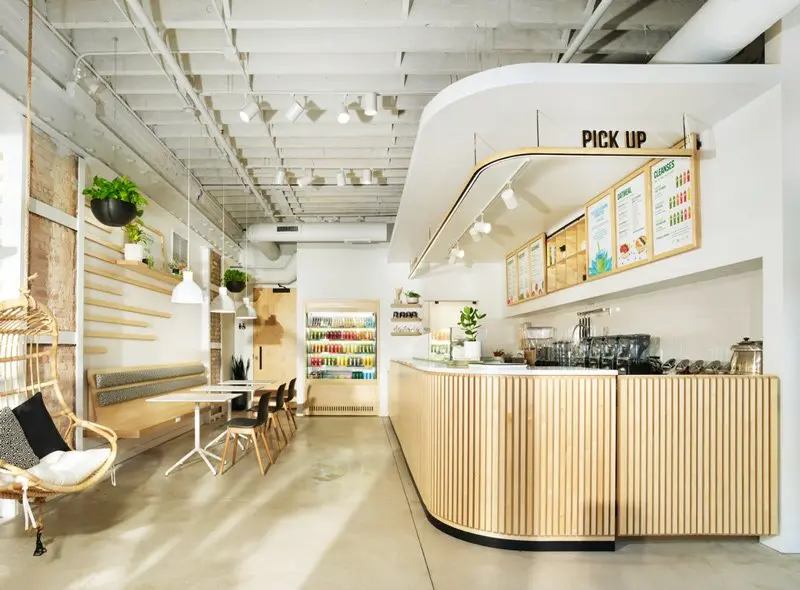A juice bar franchise is always a smart bet in this increasingly health-conscious market. With the annual spend of over $8 billion on fresh juices and smoothies, demand for nutrient-packed drinks can only get hot. However, it’s important to note that not all juice bars will be successful in this market. To be sure, boom; others bust. There is just something special about this business that, beyond the love for living healthy, gives room for more strategy and market insight to make smart decisions.
Today, we break through the superficial wisdom. We’ll evaluate the real pros and cons of owning a juice bar franchise—from the great perks of franchising regarding branding to the hard truths about fees, competition, and market saturation—and I’ll walk you through some actionable tips on how to stay profitable year after year in this competitive market. Whether you are an investor for the first time or a seasoned franchise player, this article will be your clarity and tools in making the most intelligent decision for the long run. Let’s begin and determine whether this investment aligns with your business goals.

Pros of Investing in a Juice Bar Franchise
Established Brand and Name Recognition
One of the strongest selling points of investing in a juice bar franchise is brand recognition. When you join a well-known franchise, you tap into a customer base that already trusts the brand. This means from day one, your juice bar benefits from the brand’s reputation, which can significantly reduce the amount of effort and cost you’d need to invest in building awareness. Name recognition helps to cut through the competition, giving you a strong market entry that’s often harder for independent juice bars to achieve. With a known brand behind you, customers are more likely to walk through the door without needing extensive advertising—letting you focus on the customer experience and quality service.
Logistical and Operational Support from Franchisor
Another major advantage of a juice bar franchise is the logistical support you receive from the franchisor. This isn’t just about initial training—though many franchisors offer comprehensive programs that help new owners understand everything from customer service to staff management. It’s also about ongoing support in areas like supply chain management, inventory tracking, and streamlined operations. By offering established processes, franchisors make it easier to handle the daily demands of running the business, which is invaluable, especially for first-time business owners. Many franchises even provide guidance on site selection, helping you choose a location with the best potential for success.
Buying Power and Lower Costs
As a franchisee, you’re part of a larger network, and this brings significant buying power. Franchisors often have partnerships with suppliers, allowing them to purchase ingredients and supplies in bulk at reduced prices. This purchasing power trickles down to franchisees, meaning you’ll have access to high-quality ingredients at lower costs than you might if you were buying independently. Lower operational costs directly benefit your profit margins and allow you to maintain consistent quality without worrying about fluctuating ingredient costs. This advantage is particularly important in the food and beverage industry, where managing cost and quality is crucial.
Low Failure Rate and Lower Risk
Franchises generally have a low failure rate compared to independent businesses, making them an appealing investment. The established business model, combined with brand loyalty and proven operational practices, lowers the risk of failure significantly. For investors or entrepreneurs wary of the risks of starting a new business from scratch, franchising offers a relatively safer entry into the market. The brand’s reputation, tested processes, and support network create a stable foundation, reducing the common pitfalls that lead to high closure rates among independent businesses. For juice bar franchise owners, this means peace of mind and a greater chance of seeing a return on their investment.
Be Your Own Boss
Finally, a juice bar franchise gives you the chance to be your own boss. Many franchisees appreciate the freedom that comes with owning their business while still being part of a structured, supportive system. This balance lets you take charge of your career path, managing your own team, setting daily priorities, and steering your business. While the franchise model comes with guidelines to maintain brand consistency, there’s still room for you to make important decisions and grow your business. For many professionals and investors, this blend of independence with strong support makes franchise ownership a compelling option.

Cons of Investing in a Juice Bar Franchise
Initial Investment and Franchise Fees
Investing in a juice bar franchise requires a significant initial investment, which can be a barrier for some. Between the franchise fee, leasehold improvements, equipment, and initial inventory, startup costs can quickly add up. Many franchises charge upfront fees that grant you access to their branding, resources, and support—but these fees can be steep. Additionally, there are ongoing costs, such as royalties, which typically range from 5% to 10% of your monthly revenue. While these fees cover essential support, they also cut into your profits, which is something to consider when calculating your potential return on investment.
Limited Flexibility and Creative Control
As a franchisee, you must adhere to the franchisor’s established guidelines, which means limited flexibility. The brand will typically dictate menu options, store design, marketing materials, and even certain day-to-day operations to maintain a consistent customer experience across locations. While these guidelines are helpful for building a recognizable brand, they can feel restrictive, especially if you’re someone who wants to innovate or introduce new items to keep up with trends. If you have a creative vision or desire to make your juice bar unique, the franchise model’s restrictions might feel stifling.
Competition and Market Saturation
Juice bars are popular, and with this popularity comes market saturation. In many urban areas, multiple juice bars are vying for the same health-conscious customers. This competitive landscape can be particularly challenging for franchises, as you may find yourself competing not only with other franchises but also with independent juice bars that might have more flexibility in pricing or local appeal. Before diving in, it’s crucial to research the area you plan to operate in to ensure there’s a strong demand and minimal competition. Entering a saturated market could mean slower sales growth and higher customer acquisition costs.
Seasonal Demand and Market Volatility
Juice bars often see seasonal fluctuations in demand. While the summer months might be booming, colder seasons can lead to a noticeable decline in foot traffic. This volatility can make it difficult to maintain consistent profits throughout the year. Additionally, economic shifts and changes in consumer spending habits can impact the health and wellness industry. Juice bar franchises must be prepared to manage cash flow carefully, adjusting marketing strategies and costs to weather these seasonal and economic fluctuations. Planning for these challenges is essential for long-term profitability.

Tips for Long-Term Success in a Juice Bar Franchise
Choose the Right Location
Location can make or break a juice bar. To set yourself up for success, focus on finding a spot with high foot traffic and a strong concentration of your target demographic—health-conscious individuals who value convenience. Ideal locations might be near gyms, wellness centers, shopping malls, or bustling urban areas. Before committing, assess nearby competitors and consider visibility and accessibility. A prime location can boost initial sales and help build a loyal customer base more quickly.
Focus on Customer Experience
In the juice bar business, the customer experience is key. Customers are looking not only for a quality product but also for a pleasant, efficient, and welcoming environment. Train your staff to be friendly, knowledgeable, and quick with service. Maintaining cleanliness and a fresh ambiance also goes a long way in attracting repeat customers. Engaging with customers, remembering their preferences, and creating a personal connection can significantly increase loyalty. People come back for more than just juice—they return for an enjoyable, memorable experience.
Adapt to Trends and Offer Unique Products
Staying competitive in the juice bar industry means keeping up with health and wellness trends. Franchise menus may limit your flexibility, but there are still ways to engage customers with new offerings. Add seasonal ingredients, experiment with limited-time flavors, or feature superfoods that are gaining popularity. Many customers appreciate variety, so regularly refreshing the menu with approved seasonal options can draw in curious customers and boost repeat visits. Work closely with your franchisor to adapt your menu while staying within the brand’s guidelines.
Build a Strong Team
A motivated and well-trained team is essential for long-term success. Invest time in hiring and training employees who are passionate about health and customer service. Team culture affects everything from customer interactions to overall store performance, so fostering a positive work environment can pay off significantly. Regular training on new products, service standards, and operational efficiency can keep your staff engaged and aligned with brand goals. When employees feel valued and are well-prepared, they’re more likely to stay long-term, reducing turnover and helping you build a consistent, high-quality customer experience.
Leverage Local Marketing Strategies
Even with brand recognition, local marketing is crucial for attracting nearby customers. Engage with your community by utilizing social media, partnerships, and events. Running local promotions or collaborating with nearby businesses can increase your visibility and reach within the area. Many juice bar franchisees find success with social media platforms like Instagram and Facebook, where they can post eye-catching photos of their products, share health tips, and announce special deals. Community engagement builds a sense of loyalty and trust with local customers, which is especially important in a competitive market.

Making the Call: Should You Invest in a Juice Bar Franchise?
Investing in a juice bar franchise can be a rewarding venture, especially in today’s health-conscious market. With strong brand recognition, built-in logistical support, and the opportunity to be your own boss, juice bar franchises offer a structured path to business ownership. However, it’s essential to consider both the benefits and the challenges—like high startup costs, limited flexibility, and market competition—before diving in.
For those ready to take the plunge, success depends on more than just choosing a well-known brand. Strategic location selection, prioritizing customer experience, staying adaptable to market trends, fostering a strong team, and leveraging local marketing efforts are key to building a loyal customer base and thriving in this competitive space.
Owning a juice bar franchise is about finding the balance between brand consistency and local engagement. With a careful approach, clear goals, and an eye on long-term success, franchisees can tap into the booming health and wellness industry and enjoy both financial and personal fulfillment. As you consider this path, weigh your options thoughtfully, and remember: with the right strategy, your juice bar can become a community staple and a profitable investment for years to come.






